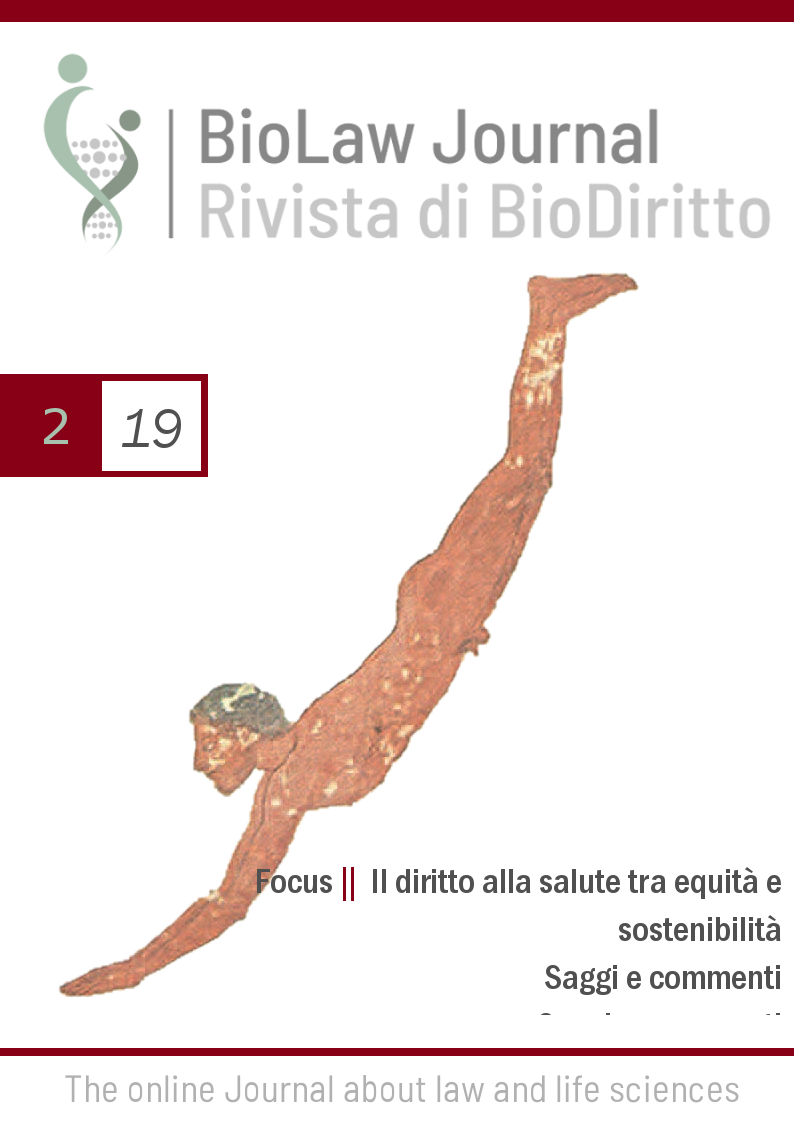L’ordinanza n. 207/2018 della Corte costituzionale, pronunciata nel corso del “Caso Cappato”, e il diritto del paziente che rifiuta le cure salvavita a evitare un’agonia lenta e non dignitosa
DOI:
https://doi.org/10.15168/2284-4503-416Parole chiave:
Euthanasia, informed consent, living will, dignity at the end of lifeAbstract
The article analyzes the content and the consequences of the recent order n. 207/2018 of the Constitutional Court, which has been pronounced on the constitutional review of the criminal provision about “assisted suicide” (art. 580 Criminal Code), as requested by the Court of Assize in the “Cappato’s case. In that order, the Court have affirmed the compelling interest of the State in protecting the life of the human person against interventions by third parties in helping one to suicide, under the constitutional personalist principle (art. 2 Const.). At the same time, the Court has recognized a new right of the competent patient, who is dependent from life-saving medical treatments, to ask the physicians for obtaining death with a lethal substance, after the refusal of the life-sustaining machines, in order to avoid a slow dying-process considered against his dignity (art. 3 and 32 Const.). A right that has to be implemented by the Parliament in the next months (and the article discuss what will happen if the Parliament will not intervene) and that may also be extended to the patients irreversibly unconscious, who have refused life-prolonging treatments in a living will.





